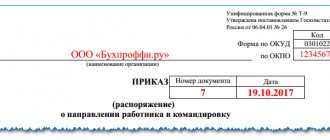Work activities sometimes involve situations where the employer is forced to go beyond the established normal working hours. Such cases provide for a separate legislative procedure for attracting employees to work, the amount of payment and forms of payment.
In addition, it is necessary to document the time worked by the employee in excess of the norm.
Next, in the article we will find out how many hours you can overwork, whether there is a time limit and how overtime should be calculated.
- With salary
Revisions in the Labor Code of the Russian Federation
Many consider all the extra hours spent in the office to be overwork.
There are usually many reasons for this phenomenon:
- Organization of work with errors.
- Submission of reports and documentation.
- Excessive loading, and so on.
If the initiator is an employee and not an employer, overtime work is not discussed. Article 99 of the Labor Code of the Russian Federation confirms this. The main condition for the appearance of the term “overwork” is tied to the desire of management to assign work beyond the previously established norms.
Written consent from subordinates in such a situation is always required. Even if the change in the standard scheme is due to economic reasons or emergency situations. There are several conditions under which consent from the second party does not matter:
- emergency situations when eliminating the consequences of accidents and disasters;
- communications must restore normal operation;
- the consequences of emergency situations must be eliminated.
Exemption from overtime work is also permissible for several categories of citizens:
- single mothers with minor children;
- disabled people;
- persons themselves who have not reached the age of majority;
- pregnant women.
There are other restrictions on such processing. 4 hours is the limit for 1 day. There is a ban on installing such circuits more than two days after each other. 120 hours of overtime is the maximum that can be accumulated in a year using shift modes.
What is overtime work according to the Labor Code of the Russian Federation?
Work is considered overtime under the following circumstances (Article 99 of the Labor Code – hereinafter referred to as the Code):
- The initiative to implement it came from the employer.
- The volume exceeds the established standard duration of work performed every day or during a shift.
- Working hours are summed up, the amount of work is greater than the standard hours in the accounting period.
8(800)350-23-68
Dmitry Konstantinovich
Expert of the site "Legal Consultant"
Ask a Question
When the initiative to overwork working hours comes from an employee and he does it after completing the main schedule, then it is not considered overtime, and payment for it is not charged (Letter of the Ministry of Labor No. 14-2/B-149 dated March 5, 2018).
A prerequisite for overtime work is episodic work. It should not be included in the work schedule (Rostrud letter No. 1316-6-1). If there is systematicity, the working day is considered irregular.
What happens if the 120 hour limit is exceeded?
The government is busy setting up a new production calendar every year. It contains the following information:
- weekend;
- holidays;
- transfers of working days;
- quarterly, annual and monthly work hours.
For example, 1973 hours was the working time for 2021. 2093 hours is the norm in case of emergency situations.
It will be difficult to avoid fines if management did not take care of timely registration of holidays for subordinates. Especially when the processing time has already reached and exceeded 120 hours. This is an administrative offense. Fines of 5 thousand rubles are applied to officials.
The penalty for enterprises will be 80 thousand rubles. Managers and enterprises are subject to disqualification and deprivation of the right to work if the violation is repeated. Such punishments are an incentive for management to keep records in accordance with all the rules.
Conditions for attracting an employee to overtime work
To attract an employee to work overtime, the following basic conditions must be met:
- The specialist’s permission is requested to involve him in work outside the main schedule, as well as the opinion on this matter of the elected body of the primary trade union organization.
- The absence of medical contraindications is confirmed.
- Material compensation is provided upon completion of work.
- The procedure according to which a specialist is assigned to work, the calculation scheme and the provision of additional rest are reflected in the collective agreement or other local document.
- Time exceeding the norm is recorded in a separate log. This is necessary so as not to go beyond the legal duration.
Violation of the procedure for engaging in overtime activities is punishable under Part 1 of Art. 5.27 Code of Administrative Offences.
Obtaining written consent
First of all, you need to obtain the consent of the employee himself and put it in writing. Article 99 of the Code defines a list of situations when overtime is allowed only if there is a written consent of a specialist:
- To complete, complete work that has already begun, if due to delays it is not completed (finished) in a timely manner within the standard allotted time. In this case, there is a threat of violation of the integrity of the organization’s personal property or property for which it is financially responsible, or conditions are created that threaten the life (health) of citizens if the specified work is not performed or completed.
- It is necessary to carry out short-term work to restore or repair structures (mechanisms) if their failure will result in the cessation of work of a significant number of employees.
- The employee replacing the previous employee did not arrive, but if a break in work is not acceptable. Replacement will be arranged immediately.
When is a medical report required?
Sometimes written consent alone will not be enough. Additionally, you will need to complete a medical report.
The issuance of a medical certificate is carried out on the basis of Order of the Ministry of Health and Social Development of the Russian Federation No. 441n dated May 2, 2012. It must indicate that employees are able to perform certain work and there are no contraindications.
You will need a conclusion:
- disabled people;
- women raising children under 3 years of age.
These employees have the right not to agree to the overtime offered to them beyond the established working hours. The right must be communicated in writing.
Cases when consent is not necessary
Consent to overtime work will not always be required. It is not necessary to obtain consent from a specialist when:
- The work concerns the need to prevent accidents, catastrophes and disasters (including if it is necessary to eliminate their consequences).
- It is necessary to carry out work that is important for the public - to eliminate sudden conditions that impede the proper functioning of centralized water supply networks (hot and cold water), drainage, as well as the transfer of heat, gas, electricity, transport, and communications.
- It is required to carry out work related to a state of emergency (war), as well as urgent work in the event of the occurrence (threat of occurrence) of disasters (floods, earthquakes, fires, epidemics, epizootics, famine) and in other cases when the normal living conditions of citizens deteriorate, a threat is created for their life.
In other situations, it is also necessary to take into account the decision made by the elected body of the primary trade union organization.
What is the maximum duration of overtime according to the labor code?
The standard working time is determined individually. It is influenced by the qualifications of the employee and the nature of his activities. The standard working hours are allowed - 40 hours per week (Article 91 of the Code).
Overtime work has a maximum duration. For each person, overtime should not exceed 4 hours in 2 consecutive working days and 120 hours per year (Part 6 of Article 99 of the Code). For example, if a specialist works 4 hours overtime in one day, he cannot be assigned to work beyond the norm again the next day.
Overtime payment: about different methods
The Labor Code also establishes the minimum amount of compensation related to overtime. The manager is obliged to record such information in advance, in the collective labor agreement. An employment contract with an employee is another place where such information is recorded. Local company regulations may increase compensation amounts, but not reduce them.
The first two hours of processing require one and a half tariff. All subsequent ones come in double size. The payment coefficient ranges from 0.2 to 2 units. It depends on whether employees are hired on weekdays or weekends, and at what time.
How to correctly register an employee's exit
Overtime work must be recorded if the employment contract does not indicate the possibility of working overtime:
- For an employee to work overtime, the employer draws up a written notice, which the employee signs. The signature confirms your agreement to perform your duties for additional time.
- If several employees are needed to work overtime, a special order is drawn up.
- The text of both the written notice and the order must indicate when and how many hours employees will work overtime.
- In the report card there is processing about.
Features with a 40-hour week
The easiest calculation is for citizens who maintain normal schedules with a 40-hour week. It is enough to record the time spent on processing once. B 04 or C – codes for accounting sheets during registration. The exact duration is placed next to this designation.
The code describes recycling standards for the year and day. But there are no indicators for the month. You can only carry out calculations theoretically. It is acceptable to assume that the maximum processing time per month is 84 days. But in practice, managers are rarely able to achieve agreement with such difficult conditions. Trade union bodies also do not agree with this.
Who can't work like that?
The legislation identifies several categories of employees whom management does not have the right to leave to perform certain duties beyond the prescribed working hours:
- These are disabled people of groups 1 and 2.
- Women during pregnancy.
- Women with children under 3 years old.
- Minor employees.
- Workers whose working conditions are dangerous.
In case of urgent production needs, disabled people and mothers of children under 3 years of age can work beyond the norm if they sign an agreement to overwork and a certificate stating that they have the right to refuse such overtime.
With a shift work schedule
At first, trade unions demanded that a 40-hour work week be considered normal. But this does not exclude another option for time spent on work duties.
There are companies on the market that are unable to stop production due to the specific nature of their work. It is important for them to supply the population with goods, services, and so on around the clock. Therefore, Article 103 of the Labor Code of the Russian Federation introduced the possibility of working on a shift schedule.
But maintaining shift work comes with its own challenges regarding keeping track of each employee's time. Therefore, the laws provide for the maintenance of so-called summarized accounting of intervals that must be worked out. The manager chooses the period of time for which such a system is applied.
The main thing is not to exceed the quarterly or annual norm.
You cannot draw up schedules with processing included in them in advance. This is considered a gross violation of the rights of stakeholders.
Things to Remember
- The Labor Code allows overtime work, but subject to temporary standards.
- Processing should not exceed 120 hours per year, 4 hours per day.
- You can leave an employee overtime for no more than 2 days in a row.
- There are categories of citizens who cannot work more than the allotted time - these are minors, pregnant women, and disabled people.
- Payment for work above the norm is calculated according to the requirements of the Labor Code and according to the internal standards of the enterprise itself.
- According to the Labor Code, on weekdays overtime is paid according to the following scheme: for an hour, payment is calculated as for an hour and a half according to the norm. On weekends, every hour is paid at double rate. If the payment is normal, the employee can count on another day off.
Overtime and overtime: how do they differ from each other?
For many enterprises, processing is an episodic event. This option is typical for accounting, logistics, and marketing departments. When the deadline for submitting reports approaches, you need to enter a matrix of a new assortment, and so on. Overtime often occurs among those in leadership positions.
Without accurate calculations and justification, overtime for management and personnel is not acceptable. There are several reasons for this:
- An 8-hour working day and a 5-day week is enough for people to have time to recover and satisfy all the body’s needs.
- Situations where personal time is wasted on overwork is prohibited, which causes a constant feeling of fatigue.
- Frequent overtime is not beneficial for the manager - because of it, wages have to be raised almost twice, or even more.
Overtime sometimes occurs at the initiative of the employee. Only the director of the enterprise can initiate overtime work. The event is accompanied by an act of organizational and administrative nature.
Features of working on weekends and holidays
Article 11 of the Labor Code of the Russian Federation establishes the rule for granting each employee a day off.
Please note! In this case, there is the following ratio of working time and rest period:
- with a five-day working week, the employee claims two legal days off;
- If the working week is 6 days, then the worker is given 1 day off.
According to current Russian legislation, the general day off for all citizens is the last day of the week - Sunday.
Before holidays, the working day should be shortened by at least one hour. During a shift work week, the rest time and working period are determined by the employer. However, one shift should not exceed 24 consecutive hours.
Article 113 of the Labor Code of the Russian Federation obliges employers to provide their employees with days off. Exceptions are the cases listed in the Labor Code of the Russian Federation.
These include the following situations:
- performance of job duties is necessary to prevent emergency circumstances;
- Failure to fulfill job duties can lead to significant damage.
Please note that in the event of an emergency, responders may be required to work on weekends.
Summarized working time recording: design features
With summary accounting, the work scheme is special when it is important to adhere to certain schedules. Most often, shifting or sliding options are used.
The reason for developing such a scheme is a situation where it is not possible to work a working week with standard hours in accordance with the norms. It often happens that shortcomings in one period of time are compensated by overwork in another. There are no violations of the established requirements for the time period. For such cases, the role of the key document is transferred to the work schedule.
Article 103 of the Labor Code helps resolve some disagreements. A schedule that includes general working hours is needed when working in shifts. For other situations, the requirement is no longer mandatory. But managers rarely give up on schedules. In another way, it is difficult to ensure that the regime complies with the laws.
It is impossible to do without recording this information in a number of local regulatory acts:
- internal labor regulations;
- basic and additional agreements drawn up with employees;
- collective agreements;
- In the case of summarized accounting, it is quite difficult to draw up a schedule.
What work is considered overtime?
It is possible to determine when normal work activity becomes overtime using the method chosen for recording in the organization of working time:
- Summarized accounting. If the normal shift time is exceeded, we can talk about overtime. The shift lasts 10 hours, then from the 11th hour the work acquires overtime status.
- When accounting is carried out in days, and the working day consists of 8 hours, then starting from the next hour.
- Another option is to set a monthly time limit. For example, when a specialist is supposed to work 160 hours a month, processing will begin from the next hour.
The following activities cannot be considered overtime:
- performed by a specialist in addition to his usual part-time working day, but within the normative limits;
- at the same time;
- during the vacation period in the absence of pay.
Getting to know the charts
Employees must be familiarized with the accompanying documentation at least a month before the new rules come into effect. After this, the subordinate signs the papers as a sign that he has no objections.
But even when solving this issue, some difficulties arise. At any time there may be a need to correct previously approved acts. The general norm remains unchanged, only the order of alternating trips to work and days off is adjusted.
No changes can be made before the document comes into force. After this point, any actions will be considered a deviation from the norm.
How to get out of this situation:
- Create indicative schedules.
- Implement the rules in parts. It is recommended to do this monthly.
This will make it possible to familiarize employees with each version of the document. Thanks to such approaches, adjustments will be easier to make.
Recycling at a reduced rate
Sometimes enterprises set a reduced rate. For such organizations, both 36 and 24 hours a week are acceptable. In this case, it is difficult to calculate what constitutes recycling. However, from a legislative point of view, everything is simple. All time worked in excess of the norm is considered overtime.
Some believe that with a shorter work week, the overtime rate decreases. However, this statement is completely false. In this case, calculations are made based on the production rate. For example, with a full week the monthly norm is 1973 hours, and with a short week it decreases to 1775.4.
Please note! Based on the above data, we can calculate the maximum possible working time: 1775.4+120=1895.4 hours for 1 year. This takes into account both holidays and weekends.
Compensation in the form of additional rest
Overtime during a shift work schedule can be compensated not only by additional pay, but also by extraordinary rest time, which corresponds to the provisions of Art. 152 Labor Code of the Russian Federation. That is, overtime hours are paid at regular rates, and unscheduled days off are not paid.
However, it must be borne in mind that compensation with increased pay is a priority - compensation by default, so to speak. If a worker wishes to receive additional rest time instead of a monetary supplement, he must inform management about this. At the same time, there was no room in the code to explain in what form a worker can communicate his desire to receive an additional day off and when this time off should be provided; HR practice shows that:
- communicate your request for additional rest time for overtime to the employee, preferably in writing, that is, in a separate application or when signing a notice of overtime work;
- the time for providing additional rest is determined by agreement between the employee and the management of the enterprise;
- the provision of additional rest time for overtime is formalized by an order or regulation of the organization.
IMPORTANT! According to Art. 152 of the Labor Code of the Russian Federation, compensation for overtime in the form of additional rest time cannot be shorter in duration than the overtime period worked. That is, for example, for 2 overtime hours an employee may be given an additional 2 hours of rest, and not a whole day off.
Design nuances and responsibility
The specifics of registration of this fact are provided for by the local regulations of the organization.
Initiating the procedure can be expressed in writing a memo addressed to the manager, which indicates the reasons for attracting people to this type of employment. Next, the person is informed of the need to work additional time and his written consent is obtained. An order is issued in the form prescribed by the organization.
Important! The employer is obliged to document the fact of hiring people over the established limit and pay them compensation.
Otherwise, the organization is held accountable under Article 5.27 of the Code of Administrative Offenses, which provides:
- a fine for an official or individual entrepreneur - from 1,000 rubles to 5,000 rubles;
- for an enterprise - from 30,000 to 50,000 rubles.
The organization may also be subject to a more serious penalty - suspension of activities.
Download for viewing and printing:
Code of Administrative Offenses of the Russian Federation dated December 30, 2001 N 195-FZ
Causes
You can only be brought to work with the consent of the worker in the following situations:
- When there is an urgent need to complete any activity that the citizen himself could not complete within a certain period of time. In this case, it is possible to involve in overworking of working hours only if failure to complete such work could lead to the loss of property or create a threat to the life and health of people;
- When it is necessary to carry out temporary technical work, without completion of which a more impressive number of people may find themselves without appropriate working conditions;
- If the work is continuous and does not imply a break, and the person replacing the previous one did not show up to his workplace. In this situation, the administration must take all measures to replace the replacement;
- When there is an important task from management, the failure of which can significantly affect the work of the entire enterprise as a whole.
You can be forced to work overtime without obtaining consent for the following reasons:
- If you plan to prevent a disaster;
- If the consequences of a natural disaster, catastrophe, or industrial accident are being eliminated;
- When performing work aimed at eliminating problems in water supply, sewerage, gas, lighting and transport systems.
In all other situations not stated above, an employee can be forced to perform his duties at the end of the working day only with his written consent. If there is a trade union in the organization, it is worth taking its opinion into account in this case.
Can additional payment be denied by law?
This law does not provide any real reasons on which an employer is authorized to refuse an employee additional payment for overtime work. Regardless of whether the overtime was carried out on the basis of the written consent of the employee or by order of the superiors, if the initiator is the employer, the refusal of additional payments is unlawful.
The employer’s categorical refusal to provide the payments in question serves as a direct basis for an application to the prosecutor’s office or labor inspectorate (
conclusions
The introduction of overtime work is applied only if the conditions provided for by law are met. Voluntary involvement of an employee can only take place with written consent.
Force majeure circumstances in the form of disasters or emergencies oblige the employee to work beyond normal working days; in this case, consent is not required.
In any situation, the employer must comply with the duration of overtime - the overtime norm of the Labor Code of the Russian Federation is established at 120 hours for one year and no more than 4 hours for two days in a row.
Didn't find the answer to your question in the article?
Get instructions on how to solve your specific problem. Call now:
+7 ext.445 — Moscow — CALL
+7 ext.394 — St. Petersburg — CALL
+7 ext.849 — Other regions — CALL
It's fast and free!
The labor activity of citizens of the Russian Federation is under state control. To study the norm of working hours per week and methods of payment for overtime, employees have the right to study the provisions of the Labor Code of Russia. The bill outlines acceptable hours for overtime and mandatory payment for additional activities.
Who should not be involved in recycling?
Articles 97, 99 and 101 of the Labor Code of the Russian Federation give an idea of the restrictions regarding involvement in processing. The following categories of workers cannot be involved in SR:
- Pregnant women.
- Minors.
- Persons combining work and study.
Some employees need to be informed, against signature, of their right to refuse management’s demands:
- Disabled people.
- Mothers of children under 3 years old.
- Single mothers and fathers.
- Guardians of minors.
The involvement of these employees in processing must necessarily be accompanied by obtaining written consent from them.
Replacing payment with rest time
Similar to overtime on weekends and holidays, overtime pay can be replaced by additional days off in the current reporting period. For example, if reporting is prepared once a quarter, then an additional day off must be submitted during these three months.
It is impossible to take a day off in subsequent periods. If an employee wishes to take a day off instead of paying overtime, his work will be paid at normal rates.
Attention! The rules for calculating overtime are relevant for enterprises where employees work no more than 8 hours a day.
Information on payment for overtime hours is useful for managers of enterprises that have a continuous or extended production cycle. This is due to the fact that workers of such organizations more often remain at their workplace after a shift.
Sequence of processing processing
The algorithm for processing working time processing is as follows:
- Providing the employee with a notice in which he will be informed of the reasons for the additional work, time, and duties that will need to be performed;
- Drawing up an appropriate notice, according to which the employee will be instructed that he has the right to refuse to be hired for additional work;
- Obtaining the appropriate signature of the employee on the above documents;
- Issuance of the relevant management order;
- Obtaining the employee’s signature on the order;
- Entering information about additional time worked into the time sheet by entering o in the appropriate columns with a number indicating the time;
- Transferring information to the accounting department for final settlement with the employee.
Important! In all situations where the need for additional work was initiated by the administration, it must be paid for.
Current legislation does not contain a single reason why an employer has the right to refuse payment. But if an employee goes to work of his own free will or stays late at the end of the working day, in this case the administration has the right to refuse his request for additional payment, since this fact may indicate the lack of qualifications of such an employee or insufficient personnel of the enterprise.
Read also: Federal Law 128 on fingerprint registration
The issue of accounting for overworking hours rests entirely with the employer, since in accordance with the law, working time standards are clearly defined. Exceeding these limits will be considered overtime and must be paid accordingly.
How many hours of overtime are you allowed to work?
Russian labor legislation allows overtime work of four hours in two shifts. This is approximately 120 hours per year.
The employer is obliged to carefully monitor compliance with the standards. Otherwise, he will face administrative penalties.
Any employee has the right to refuse to work after working hours have been completed. Pregnant women and women with children under three years of age are not allowed to work overtime.
Possible difficulties
If the employer refuses to pay for overtime, then, according to the Labor Code of the Russian Federation and the Code of Civil Procedure of the Russian Federation, employees have the right to seek restoration of the violated right in an administrative or judicial manner. In the first case, the employee has the right to send a complaint to the labor inspectorate, including in electronic form. The document must indicate information about the employer and provide a description of the controversial situation.
The main point of filing a complaint is the need to prove that the employee actually works overtime at the initiative of the employer. To do this you can:
- use witness testimony;
- written documents;
- request information from the time sheet.
Important! A complaint against an employer should not be anonymous. Based on the results of consideration of the complaint, the labor inspectorate must conduct an inspection, including a visit to the employer. If the grounds and content of the complaint are confirmed, the head of the enterprise may face disqualification.
Complaint against an employer to the labor inspectorate (form)
If it is impossible to resolve the dispute with the employer in court, you should apply for protection of your rights to the district court at the employee’s place of residence or at the place of execution of the employment contract. The statement of claim is drawn up according to the rules of the Code of Civil Procedure of the Russian Federation - Art. 131 and art. 132. It must indicate information about the employer - an individual or an enterprise, and indicate information about the plaintiff. The main task is to find evidence that additional hours worked are actually considered overtime.
Article 131 of the Code of Civil Procedure of the Russian Federation
“Form and content of the statement of claim” (more details)










